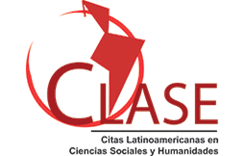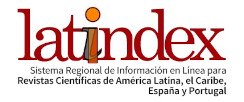FAMILY FARMING AND AGRICULTURAL COOPERATIVES UNDER THE OPTICS OF THE TRANSACTION COST THEORY: AN ANALYSIS ON THE PRODUCTION OF FRUITS AND VEGETABLES IN THE MICROREGION OF TOLEDO – PARANA STATE
Palavras-chave:
Cooperatives. Transaction cost. Family agricultural organization. Fruit and vegetable chain.Resumo
The objective of this paper is to analyze how the transaction cost theory explains the option for family organization and the presence of cooperatives in the agricultural production sector. The paper seeks to demonstrate empirical evidence to prove the theoretical assumptions in the fruit and vegetable production sector in the microregion of Toledo – Parana State, in Brazil. The research approach is qualitative, carried out primarily through bibliographical research and, integrated by the analysis and understanding of the phenomenon, through direct interaction with agricultural producers, associated and non-associated with cooperatives or associations. Empirical evidence has confirmed the theoretical assumptions of transaction cost theory. Family organization is a structure that minimizes costs with agricultural labor monitoring and agricultural cooperatives provide farmers with benefits in terms of economies of scale, especially with the dilution of bureaucracy costs.Downloads
Não há dados estatísticos.
Métricas
Carregando Métricas ...
Downloads
Publicado
13.03.2020
Como Citar
Santos, L. P. dos, Schmidt, C. M., & Mithöfer, D. (2020). FAMILY FARMING AND AGRICULTURAL COOPERATIVES UNDER THE OPTICS OF THE TRANSACTION COST THEORY: AN ANALYSIS ON THE PRODUCTION OF FRUITS AND VEGETABLES IN THE MICROREGION OF TOLEDO – PARANA STATE. Revista Brasileira De Gestão E Desenvolvimento Regional, 16(1). Recuperado de https://www.rbgdr.net/revista/index.php/rbgdr/article/view/5381
Edição
Seção
Artigos
Licença
Os autores que tiverem seus trabalhos aceitos e publicados na Revista Brasileira de Gestão e Desenvolvimento Regional estarão sujeitos a política de direitos autorais CC https://creativecommons.org/licenses/by/4.0/.
Em caso de aceite do artigo para publicação, os direitos autorais são automaticamente cedidos para a Revista Brasileira de Gestão e Desenvolvimento Regional.

















